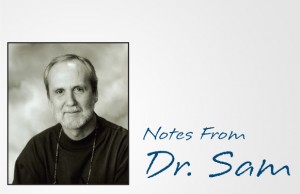President Reagan’s Last Message

On the third Monday in February, our nation celebrates Presidents Day. Technically, by Act of Congress in 1879, the federal holiday celebrated in February goes by the name “Washington’s Birthday” and is meant to honor our first President, even though it never actually falls on George Washington’s real birthday anymore as a result of the Uniform Monday Holiday Act passed in 1971.
Because the holiday always falls between the birthdays of George Washington (February 22nd) and Abraham Lincoln (February 12th), two of our most popular presidents, some states refer to the holiday as Washington and Lincoln Day or some similar variation. Some states even officially use the name Presidents Day, as well. But according to the U.S. Congress, there is no such thing as Presidents Day.
Nevertheless, businesses and families all across the country will celebrate a holiday they will refer to as Presidents Day on the third Monday in February, and the holiday is often seen as an occasion to remember all Presidents of the United States, not just Washington and Lincoln. Presidents Day, then, seems like an appropriate time to remember another popular President, Ronald Reagan, and to reflect on the last message he passed along to the American people by hand written letter almost exactly twenty years ago, on November 5, 1994.
President Reagan left the White House in January of 1989. Almost six years later, Reagan revealed in his letter that he had recently been diagnosed with Alzheimer’s disease. He lived for another decade with the disease before dying at home at the age of 93.
Significant debate centers on whether he suffered from or exhibited signs of Alzheimer’s disease while in office, with stories being told of times the President seemed to forget the identity of familiar people or zone out in the middle of conversations. If President Reagan was showing signs of Alzheimer’s disease while in office, he hid it well with his amazing story telling ability and great humor. If he was suffering from the disease while serving as President, he was still able to accomplish great things for our nation.
While it is unfortunate that this controversy exists, it provides a couple of important lessons about Alzheimer’s disease. First, it is not always clear when Alzheimer’s strikes. Sometimes a temporary memory lapse is just a temporary memory lapse, but sometimes it is much more. There have been several books written arguing strongly that President Reagan clearly suffered from Alzheimer’s disease while in office, and there have been books written arguing just as strongly to the contrary.
While there is certainly a lot of politics behind the debate surrounding President Reagan, similar concerned discussions occur in families across Arkansas every day about aging family members. Even when a person has been diagnosed with Alzheimer’s disease, they do not necessarily always exhibit signs of the disease. The point is, we as spouses, children, and grandchildren of aging relatives must be diligent in watching for signs of problems so that we can obtain treatment and get help early.
Following Reagan’s example, do not live in denial; if the disease can impact the family of an American President, it can affect anyone. We should act quickly to do everything possible to minimize the health issues caused by our family members’ mental struggles and ensure that we are prepared for the battle ahead.
In fact, in Reagan’s own words, the reason he and his family decided to go public with his diagnosis was to raise awareness of the disease. In his handwritten letter to the American people, he said, “So now, we feel it is important to share it [my diagnosis] with you. In opening our hearts, we hope this might promote greater awareness of this condition. Perhaps it will encourage a clearer understanding of the individuals and families who are affected by it.”
President Reagan also encouraged us to do more than seek help and treatment for those suffering from Alzheimer’s disease. He reminded us, “Unfortunately, as Alzheimer’s disease progresses, the family often bears a heavy burden.” His only wish was that he “could spare Nancy from this painful experience,” and he expressed confidence that she would carry the burden “with faith and courage.” But he knew she would need help, just as caregivers all across Arkansas need help and support while caring for aging family members.
Whether you have aging family members of your own and you need a reminder to be on watch for signs of Alzheimer’s disease or you know friends, neighbors, or church members who spend their days as caregivers who could benefit from your support, both physical and emotional, remember these important lessons and this last message President Reagan courageously shared with the American people about this painful disease. Know that you are not alone.









0 comments